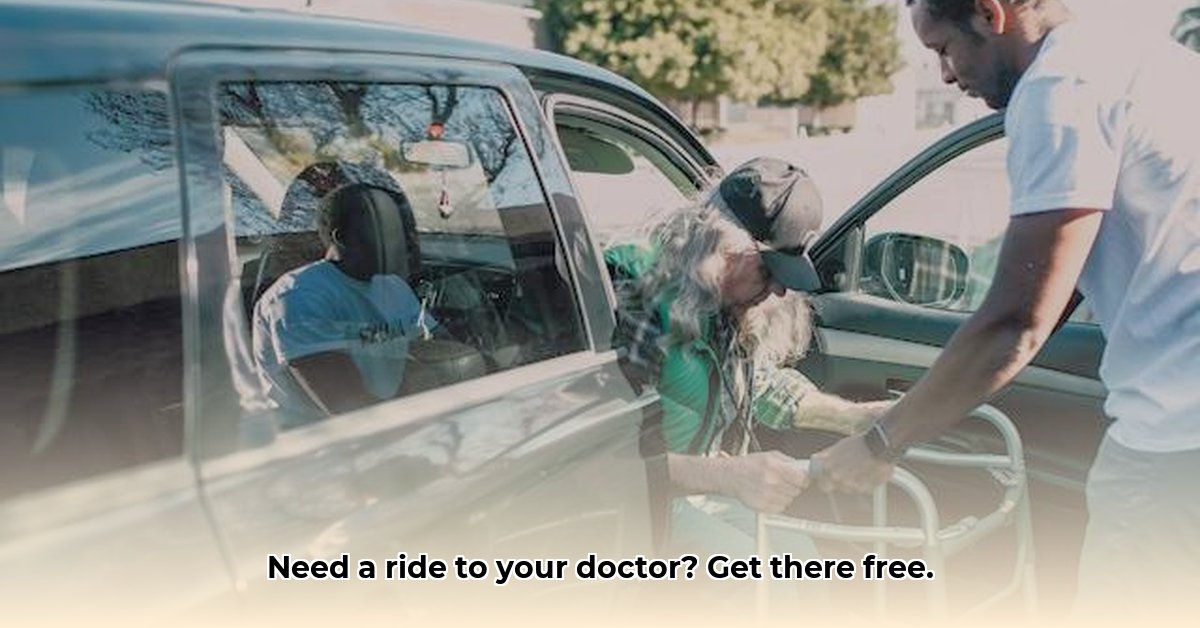Getting to the doctor shouldn’t be a struggle. We understand how stressful it can be to worry about transportation, especially when you’re dealing with health concerns. This guide offers solutions for finding free or low-cost rides to medical appointments, helping you access the care you need.
Medicaid’s Non-Emergency Medical Transportation (NEMT)
Medicaid offers Non-Emergency Medical Transportation (NEMT), potentially providing free rides to and from non-emergency medical appointments. Eligibility varies by state, so confirming your specific situation with your local Medicaid office is important.
How to Explore NEMT:
- Contact Your State Medicaid Office: They can provide details about eligibility and the application process.
- Apply: If eligible, you’ll probably need to complete an application, explaining your medical needs and transportation barriers.
- Know Your State’s Rules: Medicaid rules differ significantly between states. Your local Medicaid office is the best source for specific details.
Lyft Pass for Healthcare
Lyft Pass for Healthcare allows healthcare providers to cover Lyft rides for their patients. It’s important to note that your provider, not you directly, pays for these rides.
Is Lyft Pass an Option for You?
- Ask Your Provider: The first step is to inquire if your healthcare provider participates in the Lyft Pass program.
- Using the Lyft App: If your provider is enrolled, you’ll likely book rides through the Lyft app, similar to ordering a regular Lyft.
Finding Local Transportation Programs
Beyond NEMT and Lyft Pass, numerous community-based programs may provide free or low-cost transportation.
Locating Local Resources:
- Online Searches: Use specific keywords like “senior transportation,” “disabled transportation assistance,” or “free rides to medical appointments,” adding your city and state.
- Community Organizations: Local senior centers, disability service organizations, and even churches or charities often offer transportation assistance.
Affordable Transportation Alternatives
Several budget-friendly transportation alternatives can help you reach your appointments.
| Transportation Option | Pros | Cons | Estimated Cost |
|---|---|---|---|
| Public Transportation | Often the most affordable, widely available. | Can be inconvenient with fixed routes and schedules, potentially inaccessible for some. | Low |
| Rideshare Discounts | Convenient door-to-door service; may offer discounts for medical trips or through healthcare partnerships. | Can still be moderately expensive even with discounts. | Moderate |
| Volunteer Driver Programs | Often free or very low-cost; personal assistance and companionship. | Limited availability, potential wait times, relies on volunteer availability. | Low to Free |
| Neigbor-to-Neighbor | Personal assistance and companionship and maybe free or low-cost | Limited availability, potential wait times, relies on volunteer availability. | Low to Free |
Research each option in your area to determine the best fit for your needs.
Advocating for Better Access
Access to healthcare transportation is a crucial issue. Connecting with local and state advocacy groups can empower you to contribute to positive change and improve access for yourself and others. Organizations like the Community Transportation Association of America (https://www.cttransit.org/) provide valuable resources and information on advocacy efforts.
Frequently Asked Questions (FAQs)
- What if my NEMT ride doesn’t show up? Contact your state Medicaid office immediately for assistance.
- I’m not eligible for Medicaid. What other options are there? Explore local programs, rideshare discounts, volunteer driver programs, and other affordable alternatives.
- Do these programs cover rides beyond doctor’s appointments (e.g., pharmacy, grocery store)? Some programs may. Contact your local Area Agency on Aging or social service agencies to explore non-medical transportation assistance. Eldercare Locator (https://eldercare.acl.gov/) can help you connect with these services.
Additional Resources and Considerations
- Supplemental Transportation Programs for Seniors and People with Disabilities: Many communities offer specialized transportation programs tailored to the needs of seniors and individuals with disabilities. Check with your local Area Agency on Aging or council on aging for more information.
- Online Transportation Finders: Some websites and apps specialize in helping individuals find transportation resources in their area. These tools often allow you to search by location and specific needs.
- Negotiating with Healthcare Providers: Don’t hesitate to discuss transportation challenges with your healthcare provider. They may be aware of local resources or offer flexible appointment scheduling to accommodate your situation.
- Planning Ahead: When relying on transportation assistance, plan your trips well in advance. This allows time for scheduling, confirms ride availability, and minimizes potential delays.
This guide provides a starting point for navigating the often-complex landscape of medical transportation assistance. While finding the right solution might take time, numerous resources are available to help you access the healthcare you deserve. Ongoing efforts to improve transportation access continue, so staying updated on new programs and developments in your area is always beneficial. Remember, you are not alone in this journey.
- Best Game Apps Without Ads For Uninterrupted Playtime - February 14, 2026
- Cool Apps for Android Tablet for Creativity, Fun, and Productivity - February 13, 2026
- Must-Have Great Apps for Tablets to Get More Done - February 12, 2026










